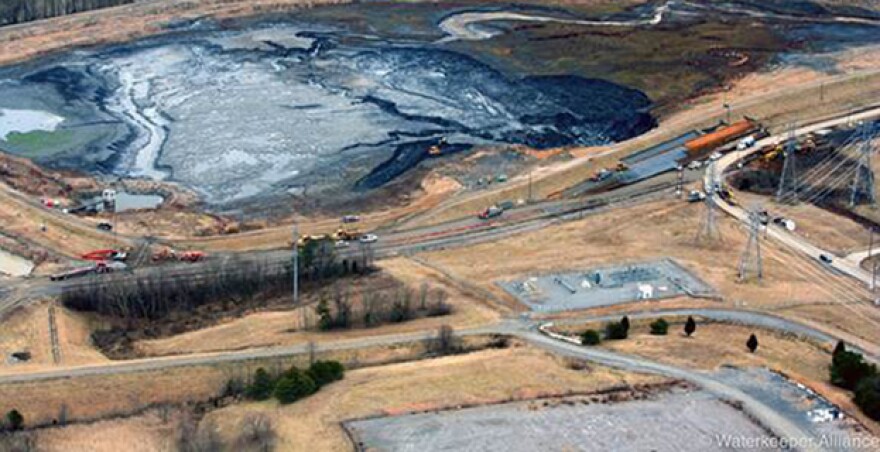Democrats in the state House and Senate want stricter regulations on vanadium and hexavalent chromium, also known as chromium-6.
"Senate Democrats will call for a budget amendment to establish state standards for hexavalent chromium and vanadium that reflect the CDC's recommended health protective threshold of 0.07 parts per billion," Sen. Mike Woodard (D-Durham) told reporters during a Raleigh press conference.
State regulators found both vanadium and chromium-6 in well water around the state last year, including in wells near Duke Energy's leaking coal ash pits. That prompted the state Department of Health and Human Services to issue a 'do not drink' advisory last year. DHHS lifted that advisory in March, after the Department of Water Quality expressed concerns that the heavy metals were detected at levels too low to be considered dangerous.
Amy Brown is not convinced. Brown lives next to a Duke Energy coal ash pit in Belmont. During a Raleigh press conference, she held up one of the bottles of water the company delivers to her home.
"This is what breakfast starts with," Brown said. "I have to grab a bottle of water, open it up, and pour it in pot to boil to fix my children oatmeal."
Brown is one of hundreds of residents Duke started delivering water to after the state advised them not to drink their well water. The company says the well water is safe to drink and that they only provide the water for residents' peace of mind.
Woodard is also calling for an investigation into the role of Governor Pat McCrory and his administration in the lifting of a 'do not drink' advisory.
Most states do not have thresholds for chromium-6, and neither does the federal government, though the Environmental Protection Agency is scheduled to release guidelines in December. A threshold of 0.07 parts per billion would be much stricter than California's, which at 10 ppb is currently the nation's most protective.










